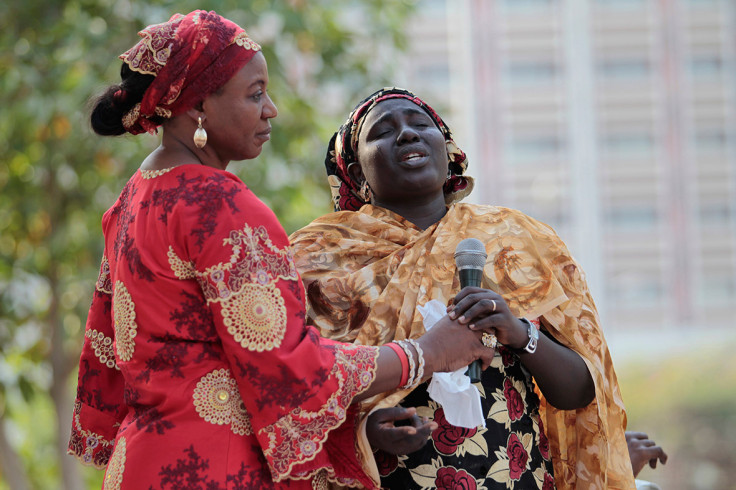Nigeria Boko Haram: President Muhammadu Buhari orders new investigation of Chibok kidnapping

Nigerian President Muhammadu Buhari has ordered a fresh investigation into the kidnapping of 219 girls. The mass abduction was carried out by Boko Haram terrorists as the girls were attending evening school in Chibok, a remote village in the restive Borno state, in April 2014.
The president approved the new investigation after meeting with some parents of the missing girls as well as members of the Bring Back Our Girls movement, who had organised a march in the federal capital of Abuja.
The new probe will be conducted by a panel nominated by the National Security Adviser (NSA), General Babagana Munguno. Among other things, the panel will look into the circumstances of the abductions and the inaction that followed the incident.
The Chibok girls were kidnapped when former president Goodluck Jonathan was in power. The mass-abduction stirred international outrage and shed light on the deadly insurgency of Boko Haram which, until then, had remained under-reported.
Jonathan was accused of not stepping up the efforts to find the girls and halt the insurgents. Recent investigations into arms procurement during the previous administration have also led to the arrest of high profile officials accused of stealing funds aimed for the anti-terrorism fight.
"I assure you that I go to bed and wake up every day with the Chibok girls on my mind," Buhari was quoted by his spokesperson Garba Shehu as saying during the meeting in Abuja.
"The unfortunate incident happened before this government came into being. What have we done since we assumed office? We re-organized the military, removed all the service chiefs and ordered the succeeding service chiefs to deal decisively with the Boko Haram insurgency."
The leader added that in spite of an economic crisis caused by fuel scarcity and decreasing oil prices, the government invested in the training and re-equipment of soldiers who were later deployed in north-eastern Nigeria, which bears the burnt of the insurgency.
Who are Nigeria's Boko Haram terrorists?
Boko Haram (renamed Iswap) fights against Western influence in Nigeria and aims to impose its version of Sharia law throughout occupied territories.
Boko Haram carries out attacks in Nigeria and neighbouring countries in a bid to take control of more territory. Three Nigerian states − Adamawa, Borno and Yobe − have been under a state of emergency since May 2013.
Boko Haram has killed between 17,000 and 20,000 people since 2009 and was deemed the world's deadliest terror group, surpassing its ally the Islamic State (Isis), in November. Nigeria has become the world's third most terrorised countryas a result of the group's violent insurgency.
"When we came in Boko Haram was in Adamawa, Yobe and Borno," Buhari said. "Boko Haram has now been reduced to areas around Lake Chad. Securing the Chibok girls is my responsibility."
The Nigerian army is leading a regional offensive – consisting of 8,700 troops from Nigeria, Niger, Chad, Cameroon and Benin – against Boko Haram. The offensive has scored some successes, such as the recapture of key territories and the recovery of arms and vehicles used by the terrorists during their attacks.
The military has also freed thousands of civilians kidnapped by the terrorists who, since the past year, have resorted to forcing their captives to carry out suicide bombing missions.
Although Buhari declared a technical victory over the fight against the insurgents in December, Boko haram has been carrying out scattered attacks across north-eastern Nigeria and neighbouring countries.
Buhari said he was ready to negotiate with the terrorists for the release of the Chibok girls. However, some analysts have pointed out that negotiations will unlikely occur after Boko Haram allied with the Islamic State (Isis).
Nigeria up close: Check out our Flipboard magazine
© Copyright IBTimes 2025. All rights reserved.






















